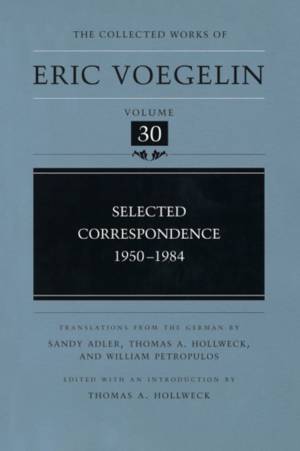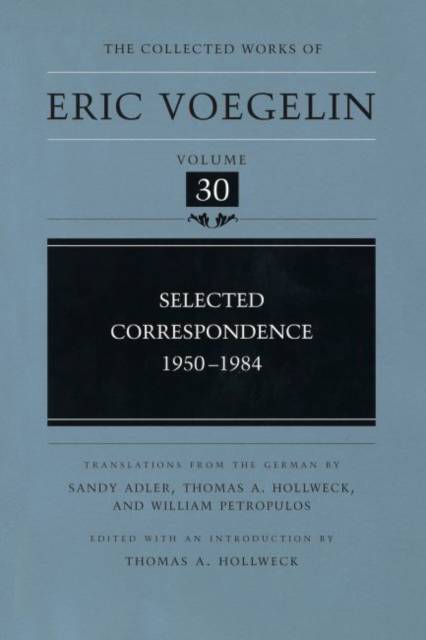
- Afhalen na 1 uur in een winkel met voorraad
- Gratis thuislevering in België vanaf € 30
- Ruim aanbod met 7 miljoen producten
- Afhalen na 1 uur in een winkel met voorraad
- Gratis thuislevering in België vanaf € 30
- Ruim aanbod met 7 miljoen producten
Zoeken
Omschrijving
This second volume of letters written by Eric Voegelin covers the period from 1950 through 1984. With few exceptions, the originals are to be found in the Hoover Institution Archives at Stanford University. Correspondents include Leo Strauss, Karl Löwith, Alfred Schütz, Aaron Gurwitsch, Hans Kelsen, Marshall McLuhan, Bertrand de Jouvenel, Arnold Toynbee, and Marie König, among others. Beginning at a time when Voegelin was working on a major theoretical breakthrough, reflected in the Walgreen Lectures at the University of Chicago and The New Science of Politics, the correspondence highlights the years of publication of the first four volumes of Order and History; Voegelin'smove to Munich, where he founded and directed the university's Institut für Politische Wissenschaft; and his years as Henry Salvatori Distinguished Fellow at the Hoover Institution in Stanford from 1969 to 1974. Voegelin remained a tireless correspondent until the last years of his life. Voegelin's Munich years, while not without controversy, can be seen as the most successful time in his life, as well as his most creative and prolific as a political philosopher. During that time, Voegelin worked on volume IV of Order and History, and the letters written to successive directors of the Louisiana State University Press, as well as to friends and colleagues, give a vivid account of the changing nature of this seminal project. Voegelin's letters written between 1969 and 1984 provide compelling evidence of the intellectual vigor that characterized his work throughout his life and continued virtually undiminished until the last weeks before his death. Voegelin's realism, his sharp wit, and his superbly developed sense of irony remain evident in the correspondence throughout all these years. While letters to Leo Strauss, Robert Heilman, and Alfred Schütz have been published in separate volumes of correspondence, this selection adds an abundance of hitherto unpublished letters, many of them translated from the original German, providing for the first time the outlines of an intellectual biography of one of the most profound thinkers of the twentieth century. Any reader with a serious interest in Voegelin's work will find that the freshness and vitality of his thought are perhaps nowhere more evident than in the letters collected here. As a letter writer, Voegelin always challenged his counterparts, and he is bound to challenge the reader of this correspondence.
Specificaties
Betrokkenen
- Auteur(s):
- Uitgeverij:
Inhoud
- Aantal bladzijden:
- 952
- Taal:
- Engels
- Reeks:
- Reeksnummer:
- nr. 30
Eigenschappen
- Productcode (EAN):
- 9780826216724
- Verschijningsdatum:
- 1/09/2007
- Uitvoering:
- Hardcover
- Formaat:
- Genaaid
- Afmetingen:
- 170 mm x 234 mm
- Gewicht:
- 1669 g

Alleen bij Standaard Boekhandel
+ 291 punten op je klantenkaart van Standaard Boekhandel
Beoordelingen
We publiceren alleen reviews die voldoen aan de voorwaarden voor reviews. Bekijk onze voorwaarden voor reviews.











